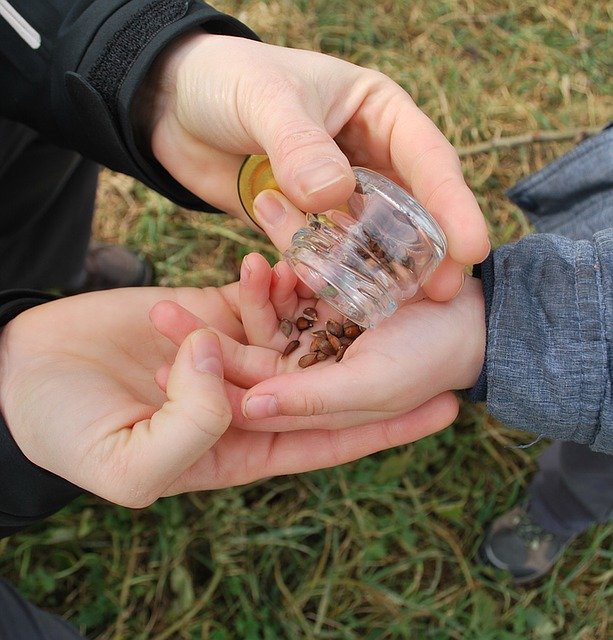Why do we value heirloom seeds?
What are heirloom seeds?
Any plant seed varieties that have been grown for years and have not been genetically modified are classified as heirloom seeds. The seeds can be for vegetables, fruits, flowers, trees, or anything else that produces a seed.
You can depend on heirloom seeds to produce the same plants, food, and/or blooms year after year. Heirloom seeds will produce the same plant color, size, flavor and yield each year unless they become naturally cross-pollinated.
Heirloom seeds have not been treated with any chemicals and the produce from which they are harvested has been grown in organic gardens.
The produce grown from heirloom seeds is also free of chemicals if they are grown in an organic garden. The produce will be better for you and the environment when it starts by planting an heirloom seed.
Non-GMO
Heirloom seeds have not been genetically modified in any way. The fresh food and flowers will be the same as those grown by grandparents and great-grandparents.
Seedless produce is easier to eat but did you ever stop to think where the seeds went? Vegetables and fruits are not naturally seedless, they have been genetically modified to produce a higher yield for commercial growers and to be more consumer-friendly.
Seedless fruits and vegetables are sterile and can’t reproduce. Growers must purchase new seeds each year for planting. On rare occasions, a GMO plant will produce seeded food but those seeds are unreliable and you never know what they will produce.
Studies indicate that GMO foods are not as healthy as non-GMO foods. Vitamins, minerals, and other health-benefiting nutrients have been reduced along with some of the less-desirable characteristics of the food.
Adapted to Environment
Heirloom seeds have adapted to their environment produce plants that adapt well also. Plants will be naturally disease-resistant, pest-resistant, and tolerate what the normal weather conditions are for the climate.
When plants have adapted to their environment they are hardy and will require less maintenance, less water, and be resistant to common pests in the area.
Seed Saving
Heirloom seed varieties have adapted to being harvested and saved, making it an easy and reliable gardening task each year.
Yearly seed saving will save money and allow you to grow the same fruits, flowers, or vegetables year after year. Saving seeds will also ensure that you will have enough of the desired seeds on hand at planting time.
Swapping or selling heirloom seeds is also a lucrative side business. These seeds that produce chemical-free, non-GMO foods and flowers like grandma used to grow are in high demand. Save enough seeds for your garden and plenty of extras to use as barter.
Procuring Heirloom Seeds
Beginners can purchase heirloom seeds from most garden supply centers but the best place to start the quest for heirloom seeds is your gardening relatives, neighbors and friends.
Check out their flower and vegetable gardens. If you like the look of their flowers or the taste of their vegetables, ask for some seeds, if the plants are not hybrids. Seeds saved from hybrid vegetables will not stay true to their parent plant.
Grow Organic Food
Growing fresh organic produce from heirloom seeds is a fun, healthy and rewarding endeavor.
When you start with heirloom seeds and grow them under organic conditions, you will grow the healthiest food possible.
Here are a few of the popular heirloom vegetable varieties that are easy to grow in a home garden.
* Early Jersey Wakefield Cabbage. First grown in America by Francis Brill of Jersey City, New Jersey in 1840. This heirloom cabbage matures earlier than most varieties and forms a pointed head to prevent splitting.
* Galeux D’Eysines Pumpkin is a French heirloom pumpkin originated in Eysines, France in the 19th century. Also known as the peanut Pumpkin because of its shape and the Warted Sugar Marrow because of the warty-looking outer shell and sweet flesh.
* Mary Washington Asparagus is an open-pollinated, rust-resistant variety that has set the standard for asparagus since the 1800s.
Related Content
- Practical Tips for Long-Term Self-Reliant Living
- How to Start Your Own Home Farm: A Beginner’s Guide
- Why Organic Gardening is the Best Choice for Your Health and the Environment
- From Hobbyist to Professional: Tips for Turning Your Home Farm into a Business
- Plan Homestead Succession for Future Generations





